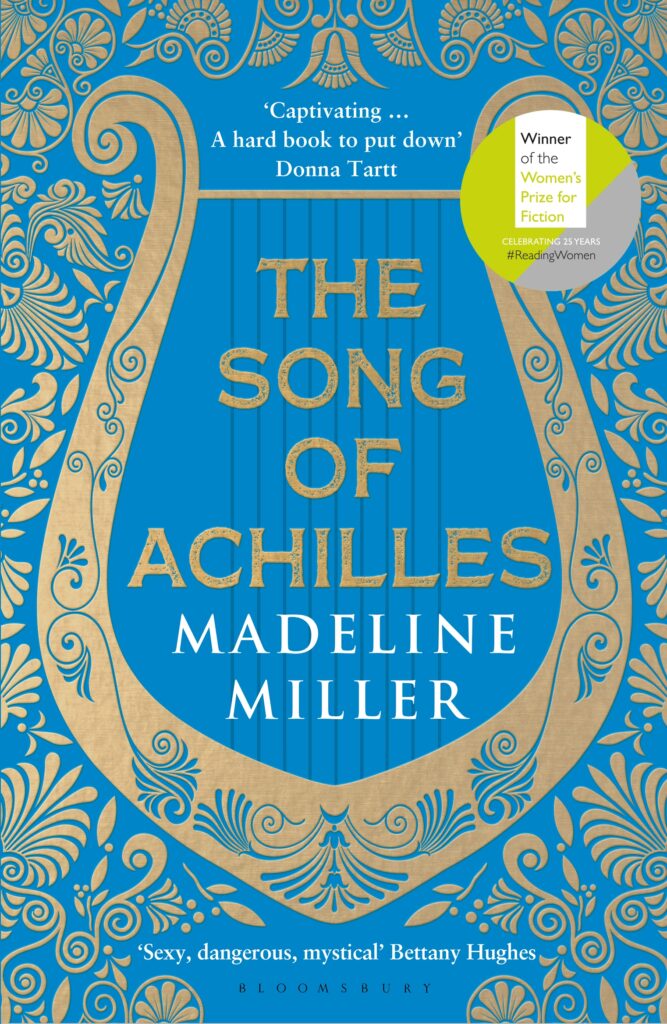From the Women’s Prize Archives.
We caught up with Madeline Miller to discuss walking in Homer’s footsteps, the initial inspiration behind The Song of Achilles and what she’s working on now.
When did you first have the idea to write The Song of Achilles?
I began writing the novel the summer after I graduated from University, before starting my Master’s in Classics. I had just finished directing a production of Troilus and Cressida, which was a complete revelation for me. Up until then, I had only interacted with these stories from an academic perspective, but working with Shakespeare’s characters inspired me to approach them creatively as well. I opened my laptop and Patroclus’ voice was there. Of course, none of those initial sentences survived the editing process. From idea to final execution was ten years.

Did the task of reimagining Homer’s work make you nervous at all?
Terrified. These stories have been worshipped for nearly three millennia, and who was I to think I had something to say about them? But a wise professor gave me some bracing advice: all writing is hubris and self-indulgence. Get over it, or give it up.
I knew I couldn’t give it up, so I told myself I’d write, and if it was no good, I’d throw it out, and no one would ever have to know about the sacrilege. Now, I’ve come to a different perspective: first, that new adaptations bring new attention and new readers to the original, which is always positive. And second, whatever happens, Homer will be just fine. This poetry has withstood much worse than anything one individual can do!
Patroclus is very elusive in The Iliad – what made you decide to make him the narrator of your book?
It was that elusiveness which intrigued me. Achilles’ all-consuming, obliterating grief for Patroclus’ death is the linchpin of the entire Iliad, yet Patroclus spends most of the poem in the background. It seemed to me a great mystery. Who was this man who could undo Achilles? Why was he so essential and beloved? Writing the book was my way of finding an answer to that question.
How much of the characters’ personalities came directly from Homer’s text and how much from your imagination?
It depends on the character. Homer was always a guide, but I also freely drew on other influences and my own imagination. Thetis, Achilles’ sea-nymph mother, is not so angry and uncompromising in the Iliad as she is in my version, but I was led there by her troubled relationship to mortals, based on her forced marriage to Peleus.
Patroclus’s gentleness and kindness were drawn from hints given by Homer, but his horror of violence came from my reading of his psychological backstory, and was also partially inspired by Shakespeare’s portrait of him in Troilus and Cressida as more lover than fighter.
I knew my Odysseus would be wily, of course, but I enjoyed finding new ways to set that wiliness in motion, particularly in opposition to the idealistic, earnest Patroclus.
Why did you make songs and music so significant in the novel?
Ancient poems were songs, and the word Iliad actually means “The Song of Troy,” so I knew I wanted to honor that tradition. Further, Achilles is a singer himself in the Iliad, a quite gifted one. If he hadn’t decided to die young in battle, he might have been another Orpheus, or even a healer like Asclepius. Posterity makes monoliths of people, but real life is always more messy and complex.
Can you tell us what you’re working on at the moment?
My next novel is inspired by my other great love, Shakespeare. It focuses on the relationship between Caliban and Prospero in The Tempest.



